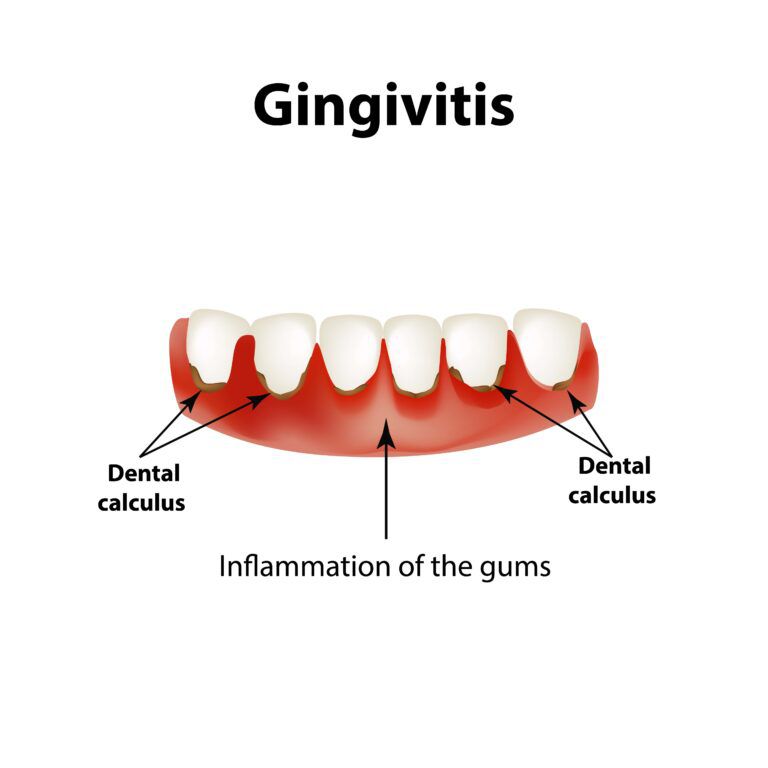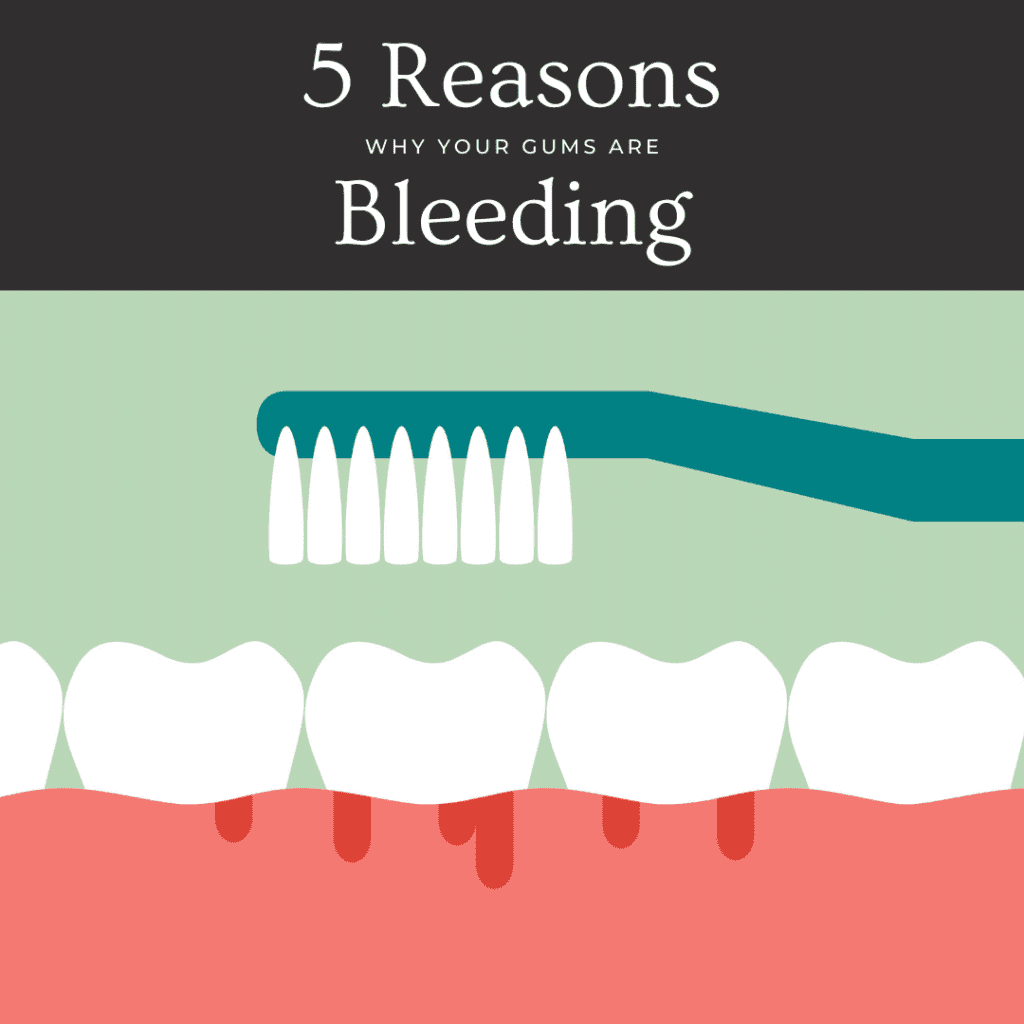If you have begun to notice a red ribbon of blood or abnormally pink toothpaste foam in the sink after you brush or floss, then you are likely wondering what is going on with your mouth. After all, your blood is supposed to stay inside your body and should not be oozing out of your gums. Some people may think nothing of bleeding gums, while others can be quite disgusted or alarmed. Regardless of what your reaction is, one of the best things you can do for bleeding gums is to determine what the cause is so that you can properly address it, possibly with the help of your dentist. Here are the top 5 reasons why your gums are bleeding:

Gum Disease
Gum disease, specifically the mild form known as gingivitis, is the most common reason why your gums may be bleeding. Formally known as gingivitis, this mild gum disease occurs when there are too many bacteria residing in the dental plaque along the gum line. Overtime, these bacteria accumulate and slowly start to infect the gums. Since bacteria use plaque as both a shelter and a food source, the more plaque left on your teeth, the more likely you are to develop gum disease. To prevent this from happening, it is important to visit your dentist regularly for a regular teeth cleaning and to practice good oral hygiene habits at home.
Changes in Dental Habits
Your gums can also be sensitive to minor changes in your dental habits, which means they can bleed in response to these changes. For example, suddenly switching to a firm toothbrush or starting to floss after not flossing for a while can both irritate your gums, causing them to bleed. When this is the case, your gums will stop bleeding in about a week once they have adapted. In some cases, however, you may need to switch to a softer toothbrush.
Medications
Taking certain medications can also cause your gums to bleed. The most common examples are blood thinners such as warfarin, aspirin, and heparin, which are used to treat heart or blood vessel disease. Since these medications are specifically designed to thin the blood and decrease its ability to clot, they also make it more likely that your gums will bleed easily. If you are taking blood thinner and notice your gums bleeding, be sure to mention this to your dentist and primary care provider.
Brushing or Flossing Too Hard

Another common reason why your gums are bleeding could be because you are applying too much pressure while brushing or flossing. Dental plaque is very soft and can effectively be removed by applying minimal pressure. Trying to scrub your teeth does not make them any cleaner and ultimately damages your enamel. In addition to making your gums bleed, brushing too hard can also make your gums recede, as can flossing too vigorously and/or letting the floss snap against your gums.
Pregnancy
During pregnancy, a woman’s body goes through a number of changes brought about by hormonal fluctuations. While these hormonal fluctuations assist the body in sustaining the pregnancy, they also affect the way that the body responds to oral bacteria. As a result, pregnant women can develop pregnancy gingivitis. This causes the gums to become inflamed, and often leads to bleeding gums. Practicing good oral hygiene during pregnancy and regular dental appointments can be used to manage pregnancy gingivitis and prevent it from getting worse.




